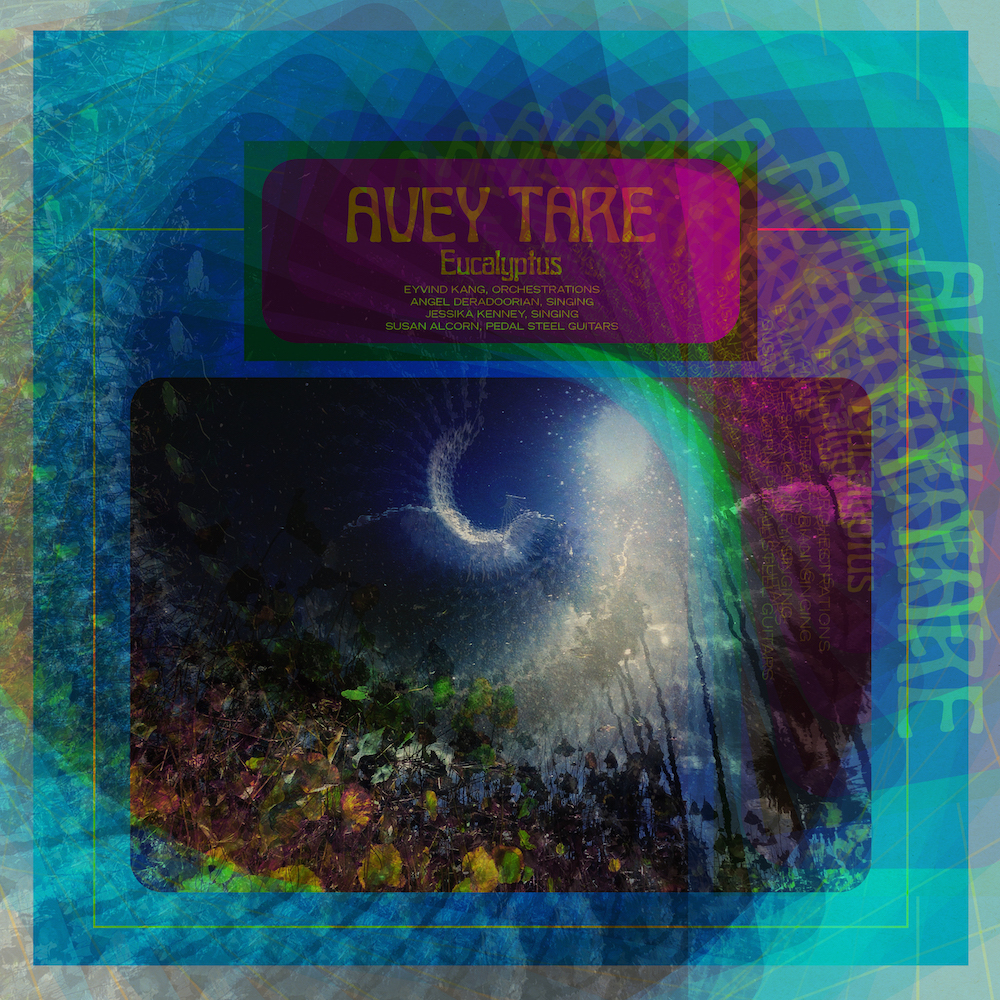This year, with relatively little fanfare, Animal Collective released an EP called Meeting of the Waters. With only two members of the band’s core quartet performing–co-lead vocalist Avey Tare and resident electronic tinkerer Geologist–it presented a clean break from the overbearing and inconsistent work the band has produced since its 2009 indie blockbuster Merriweather Post Pavilion. Slow and unfussy, Meeting of the Waters felt like an unofficial sequel to 2003’s Campfire Songs, which saw the band playing humid suburban hymns on acoustic guitars, accompanied only by the wind and chirping of bugs around the Maryland back porch where they made it.
Eucalyptus, the sprawling new album from Avey Tare (aka Dave Portner), also features a lot of acoustic guitar. For almost any American rock band, the prospect of a singer going solo for a record primarily based around that instrument would conjure something specific: earnest and direct songs, stripped-down and rootsy arrangements–the kind of stuff that’s liable to send a guy like Bluto Blutarsky into a frothing rage. For Animal Collective, however, the expectations are altogether different. Years before landing on the maximalist electronic psychedelia that became their calling card, the band deployed the acoustic guitar as an instrument of hypnosis on records like Campfire Songs, the Prospect Hummer EP, and especially the totemic Sung Tongs, testing the psychic effects of a single winsome chord mutated with all manner of pedals and strummed for many minutes on end.
In retrospect, the quietly lovely Meeting of the Waters feels like an appetizer for Eucalyptus, rather than an indication of where the full AnCo ensemble might go next. The EP’s final track, “Selection of a Place,” appears again in more concise form here, and its melancholic yearning for human connection and meaning beyond the drudgery of the everyday is in line with the concerns of the broader album. Over plaintive guitar arpeggios suggesting early Leonard Cohen, Portner sings sweetly of “impressions of wet lips on a window’s frosted lens.” This isn’t exactly new territory–he’s been sneaking straightforwardly gorgeous ballads onto Animal Collective albums since as far back as “Penny Dreadfuls” on Spirit They’re Gone, Spirit They’ve Vanished–but it’s been awhile since we’ve heard him express himself so directly. Soon after, the tempo of “Selection of a Place” picks up, and Portner jumps into the kind of uncanny multi-part vocal arrangement he’d usually stitch together with Panda Bear, except now he’s calling and responding to himself.
Throughout, Eucalyptus similarly balances traditional “songwriter” signifiers with Animal Collective’s cosmic outsider appeal. After the two rambling five-minute tracks that open the album, “Ms. Secret” is the first song to jump out on early listens, a mellow jammer that oddly recalls Crosby, Stills, Nash, and Young, or Croz’s beatifically stoned solo album If I Could Only Remember My Name, complete with swirling pedal steel guitar. On the opposite end of the spectrum is “Coral Lords,” which opens with a sampled monologue about the interstellar power and significance of the titular marine invertebrate, and cycles through ocean sounds, lyrics about coffee and praying like buddha, and passages of “Bees”-style spectral autoharp before its eight minutes are up.
With 15 tracks and over an hour of music, Eucalyptus is a long haul, but nothing feels superfluous. The two-part sample collage “Lunch Out of Order” plays like Portner’s vision of musique concrète, and features some of the album’s most poignant lyrics. “Jackson 5” and “Roamer” charmingly approximate the bassy stomp of AnCo’s recent material, with considerably less stadium-friendly fidelity. Portner brought in his bandmate Deakin (aka Josh Dibb) to record Eucalyptus, rather than a studio-wiz producer, and it sounds like the two were happy to experiment with whatever lo-fi drum machines and effects happened to be laying around.
Though it lacks the electrifying newness of the Sung Tongs era, Eucalyptus is nonetheless a success. It is a patient, reflective, and decidedly low-key work, one that seems content to thrum along in its own corner of the universe without much regard for whether anyone’s there to receive its generous gifts. At its best, the album brings Animal Collective’s current predilection for sonic stimulation to bear on the meditative atmosphere of their earlier work, coming off like a flashback of the younger band, dreaming of what they might sound like in a decade’s time.





